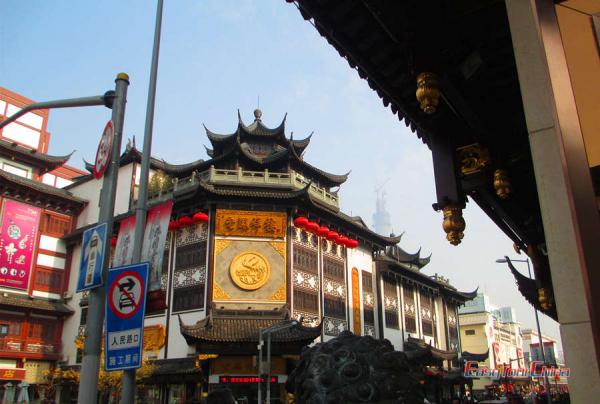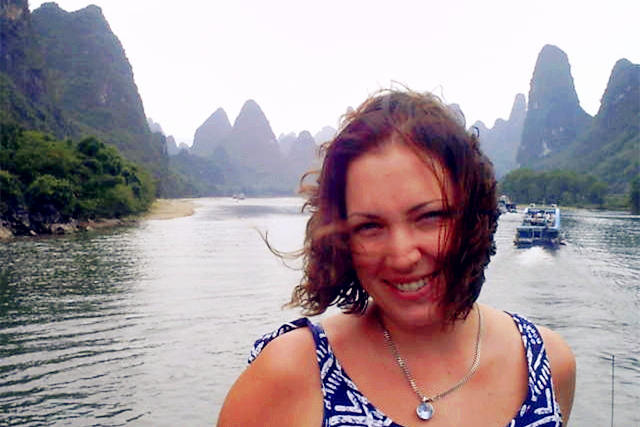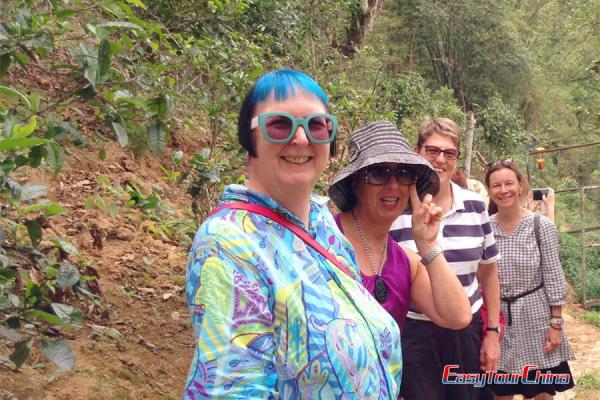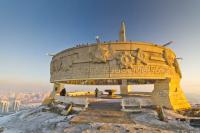City God Temple of Shanghai (Chenghuang Miao)
Located in the Middle Fangbang Road, the City God Temple of Shanghai (Chenghuang Temple) is a historic place to pray in Shanghai. As it’s in the back of Yu Garden scenic spot, and plays a role as a city’s market, so the Temple of the Town God is also called Yuyuan Bazaar or Chenghuang Miao Market. What’s more, City God Temple of Shanghai keeps its ancient buildings and decorations, so it’s counted into a part of Shanghai Old Town.
Featuring rich ancient Chinese architectural styles and characteristics, Chenghuang Temple is one of the orthodox Taoist temples in Shanghai. Chenghuang is one of the most important gods in the ancient culture of Han people, most of them are famous ministers and heroes of local people. Han people and Taoism believe the god guarding the city. Shanghai Chenghuang Temple building belongs to the style of southern China, with red walls and mud tiles, and consist of square, Huoguang hall (main hall), Yuanchen hall, hall of the god of wealth, Cihang hall, Chenghuang hall and Niangniang hall.
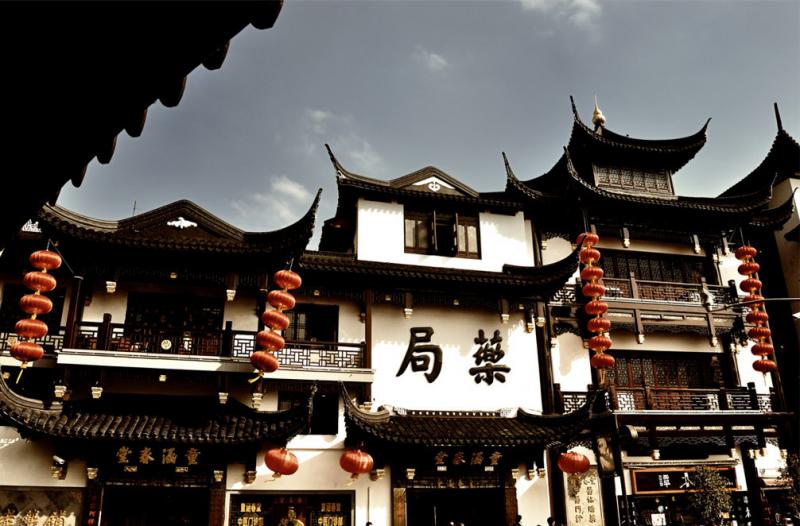
City God Temple of Shanghai Facts
- In Chinese: 城隍庙/豫园市场
- Address: No.249 Middle Fangbang Road, Huangpu District, Shanghai
- Opening time: 08:00 – 21:00
- Best time to visit: just avoid Chinese traditional festivals when it will be too crowded
- Ticket price: RMB10
- History: 600+
History & Development
Shanghai City God Temple enjoys a high reputation both at home and abroad by its long history and magnificent architecture. It said that the Temple of the Town God was built by Sun Hao, the king of Wu kingdom during 220 to 280 A.D, in memory of General Huo Guang. Till the reign of Yongle in the Ming Dynasty (1403 - 1424 A.D), it was transformed into its present form, Chenghuang Miao. The temple became well known and frequented by the Shanghai local in the Qing Dynasty.
In the temple, sits a statue of the city god (or town god). In the ancient times, people imagined that the city was protected by a god known as town god. It was believed that town god was empowered by the celestial ruler to exterminate evils in towns and cities and make citizens live a prosperous and happy life. Under his protection, people could live peacefully. People honored him as a god and believed that he would bring them peace and happiness. Even today, every year at a fixed time, people come to the temples and show their respect for their protectors by kowtowing and offering some sacrifices. Usually, there are one or two sacrificial ceremonies each year. The ceremonies are important occasions for both old and young.
After the opening of Shanghai Port, merchants swarmed around the temple and surrounding areas and fostered a flourishing market.
>> Recommended Shanghai tours with City God Temple and Yuyuan Bazaar
Chenghuan Temple Architecture & Main Halls
The Shanghai City God Temple faces south with its back to the north. The main gate, the second gate, the stage, the main hall, the bedchamber, and the east-west corridors and hips are all arranged in sequence along the central axis.
The main buildings in the temple include the main hall, the Yuan Chen hall, the Parents' Hall, the Guan Sheng Hall, the Wen Chang Hall, and four other halls.These buildings are mainly painted in two colors, vermillion and diaphanous green.
Adopting the overhanging mountain roof, it maintains the pattern of the Ming Dynasty in terms of architectural style.
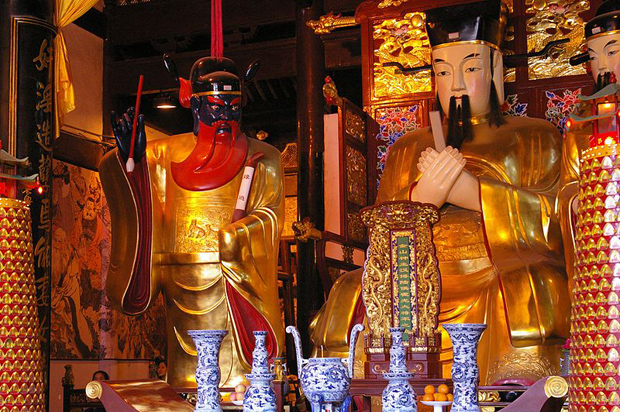
>> Learn about Chinese Zodiac to understand your horoscope of relationship, wealth, and health in the new year.
Shanghai City God Temple Festivals & Events
“Sacrifice to City God” Ceremony
Qin Yubo, the revered god of Shanghai City God Temple, is widely respected by the people. In order to pay tribute to the god, according to the traditional rituals, every time on the 21st day of the 2nd month of the lunar calendar, Shanghai City God Temple will hold the “Sacrifice to City God” ceremony.
Puja for Worshipping Moon Lord
Shanghai City God Temple sometimes organizes pujas on the day of Double Seventh Day to bless unmarried believers with good fortune.
Ghost Festival Dharma assembly
The 15th day of the seventh lunar month, the Zhongyuan Festival, is also known as the "Chinese Ghost Festival". Both Taoist temples and the common people hold sacrificial activities. The Shanghai City God Temple, mainly worship the souls of those who died in disasters and wars and were left unattended, to eliminate their misfortunes and sins.
Spring Festival Temple Fair
Visiting the temple fair at the City God Temple is a traditional activity with a sense of ceremony for Shanghainese during the Spring Festival. The activities includes Chinese lion dance, folk handicraft exhibitions, Kung Fu and acrobatics special performances, etc.
>> Recommended Best of Shanghai Day Tour: Modern & Traditional Shanghai
Today's Yuyuan Bazaar
Yuyuan Bazaar Food
The history of the Yuyuan Bazaar or Yuyuan Market can be traced back to over 140 years ago during the Tongzhi period of the Qing Dynasty. Today, it is rebuilt into a large-scale tourist and shopping center, and well called "the kingdom of snacks", and become an ideal place to taste all kinds of Shanghai local food and snacks. It have pooled many local refection such as the distinctive desserts in Lu Bo Lang Restaurant, the steamed buns with vegetable stuffing in Song Yue Lou Restaurant, the pigeon-egg-like dumplings in Osmanthus Hall Confectionery Store, the Babaofan in Song Yun Lou Restaurant, the Nanxiang Xiaolongbao and the dumplings with the wine stuffing.
What to See
Besides, there are kinds of cultural and recreational activities in this area such as various exhibitions of flowers, calligraphies, paintings, bizarre stones, excellent folk performances of cock fighting, acrobatic performance and handwriting performance, and featured recreations also occur during traditional Chinese festivals.
What to Buy
Here, long-established Chinese brands such as Wang Dalong and Liyunge with one-of-a-kind specialty specialties such as chopstick stores and cane stores. You can also buy antique gold jewelry and Chinese silk products.
What to Do?
1. Pray for good luck and fortune. Chenghuang Miao is one of the best suitable places for praying in Shanghai. When you visit here, you can see so many locals and visitors pray for their families.
2. Look for tasty food. As a common city market, Yuyuan Bazaar is a comprehensive market gathering commodities, souvenirs and various food and snacks. There is a large part you can enjoy delicious food.
3. Appreciate ancient buildings. The City God Temple owns one of the most representative ancient traditional buildings.
Yuyuan Lantern Festival
The Yuyuan Lantern Festival has a long history. In the 29th year of Daoguang (1849), Wang Tao, a thinker in Shanghai at the end of the Qing Dynasty, recorded it in Yingjiawaji Miscellany (published in 1875). On the first day of the first month of the Chinese New Year, people go to the City God Temple at mid-night to pray for the blessing of the city god for a year of peace, and then carry lanterns to the temple fair.
Every Yuyuan Lantern Festival has more than a thousand riddles distributed throughout the festival site.
The Jiuqu Bridge is decorated with lanterns too. Visitors and citizens crossing the bridge hope to walk away from the twists and turns and bumps of the year, and have a smooth new year.
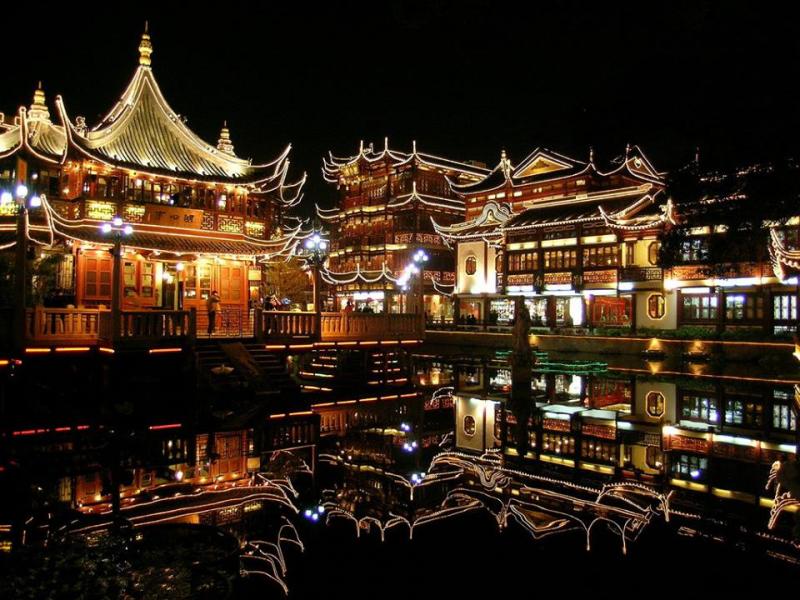
How to Get There?
Metro Line 10 runs to Yu Garden Station. Leave from No.3 Exit and walk for 10 minutes, and then you can reach the destination.
Bus 11, 64, 801, 920 or 930 can take you to Xiao Dongmen Station. After getting off, walk for 8 minutes to get to Yu Garden Market (Temple of the Town God).
